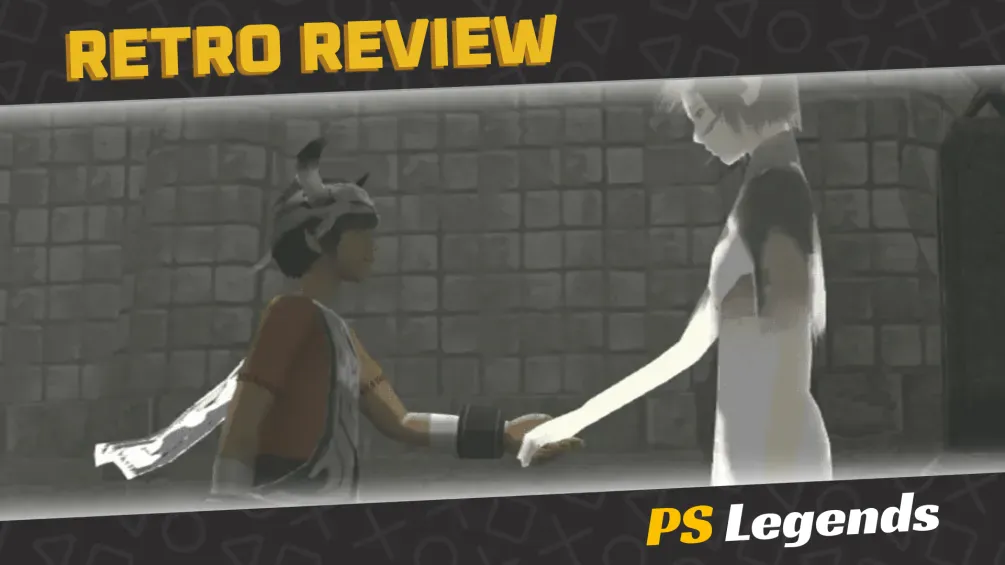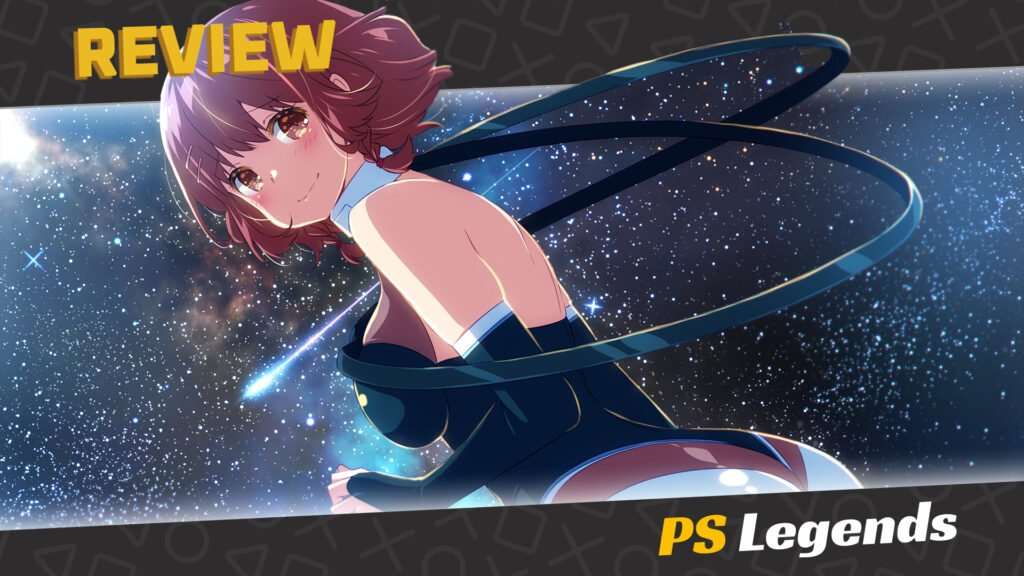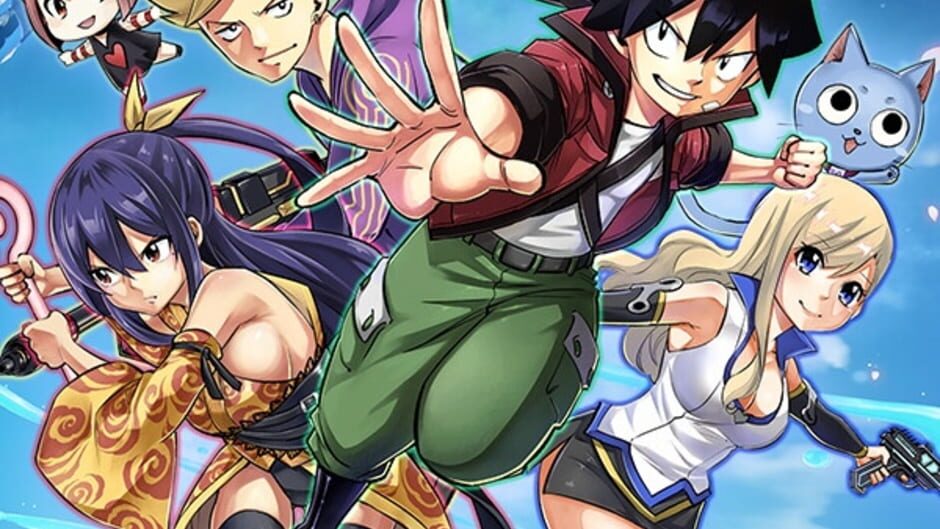Not only did it take me far too long to review Ico, it also took me far too long to actually play it. Like many, I picked it up on release and added it to the collection, only to pass on playing it for well over a year. An old friend of mine encouraged me to play it, claiming it was “a beautiful experience”, and he was absolutely right, though he did say the same thing about Braid, so you can’t be right all the time (Sorry, Phil).
I can’t say with absolute certainty what caused me to delay my playthrough, though it might have been the atmosphere that Ico delivers. It can be an intimidating game for those whose experience of classic Brothers Grimm-like tales usually have a dumbed-down Disney twist to them. Ico provides an eerie feeling of isolation and danger from start to finish, but this isn’t a bad thing; in fact, it gives the game a unique charm which can really captivate the player.
On This Page
Introduction
Ico was released back in 2001. It’s an action-adventure game developed and published by Sony Computer Entertainment for the PlayStation 2. It was designed and directed by Fumito Ueda, who wanted to create a minimalist game based on a “boy meets girl” concept. The game took around four years to develop. The team employed a “subtracting design” approach to reduce elements of gameplay that interfered with the game’s setting and story in order to create a high level of immersion with minimal effort required from player input.
Ico introduced several design and technical elements, including a story told with minimal dialogue and vibrant bloom lighting that have influenced subsequent games, particularly artistic indie titles. It was re-released in Europe in 2006 in conjunction with Shadow of the Colossus, the spiritual successor to Ico. A high-definition remaster of the game was released alongside Shadow of the Colossus for the PlayStation 3 in The Ico & Shadow of the Colossus Collection in 2011.
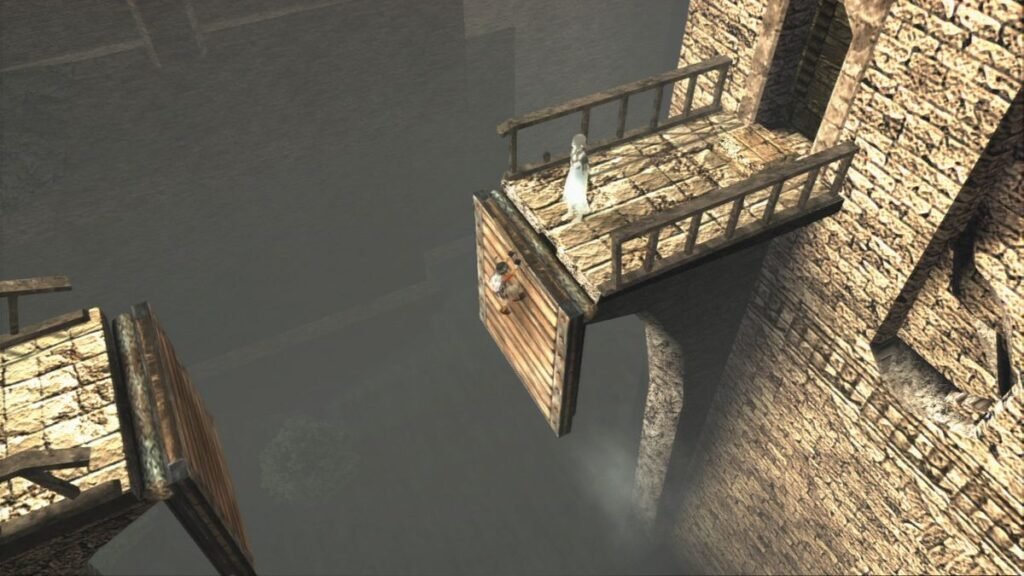
Story
Ico is a boy born with horns, a rare condition which is seen as a curse in his culture. Branded as evil, an outcast, and disowned by his family, Ico is taken away by a group of masked warriors upon reaching an unspecified age. He is taken to a largely abandoned castle and locked inside a stone sarcophagus to be sacrificed to the castle’s ruler, a seemingly immortal sorceress known only as the ‘Queen’.
An ominous tremor soon topples the sarcophagus and Ico escapes. As he searches the castle, he comes across Yorda, a captive girl who speaks a different language, though she too seeks a means of escape and the pair form an alliance. Ico helps Yorda escape and defends her from strange, humanoid, shadow creatures. Soon, the pair make their way through the castle and arrive at the gate leading to lands beyond.
As Ico and Yorda attempt to leave, the gate closes and the Queen appears, telling Yorda that, as her daughter, she cannot leave the castle. The pair retreat back inside the castle grounds after having their exit sealed. Determined to find a way to reopen the gate, the two friends explore the depths of the castle, desperate to claim their freedom.

Gameplay
Ico is primarily a 3D platform game, though you’ll find your camera locked most of the time but always at the most ideal angle. The player controls Ico from a third-person perspective as he explores the castle, solving navigational puzzles as he attempts to escape with Yorda.
The camera swivels to follow Ico or Yorda as they move; the player can also pan the view to a small degree in other directions to observe more of the surroundings. The game includes many elements of platform games; for example, the player must have Ico jump, climb, push and pull objects, and perform other tasks such as activating switches in order to progress.
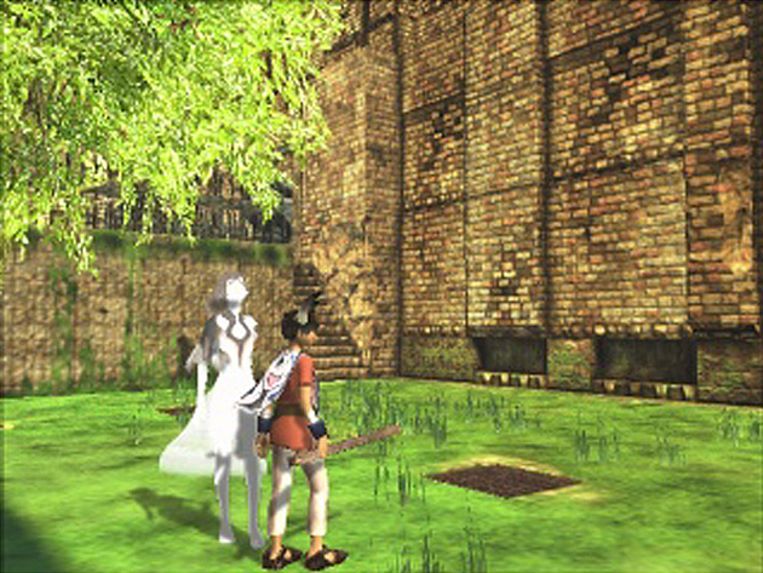
Actions are complicated by the fact that only Ico can complete most of them; Yorda can only jump short distances and cannot climb over tall barriers. The player must use Ico so that he helps Yorda cross obstacles, such as by lifting her to a higher ledge, or by arranging the environment to allow Yorda to cross a larger gap herself.
The player can instruct Yorda to follow Ico, or to wait at a particular spot. The player can have Ico take Yorda’s hand and pull her along at a faster pace across the environment. Players are unable to progress in the game until they move Yorda to certain doors that only she can open.
Escaping the castle is made more difficult by the game’s enemies, the shadow creatures. These creatures attempt to drag Yorda into black vortexes if Ico leaves her for any length of time, or if she is in certain areas of the castle. Ico can dispel these shadows using a stick or sword and pull Yorda free if she is drawn into a vortex.
While the shadow creatures technically cannot harm Ico, the game is over if Yorda becomes fully engulfed in a vortex and the player restarts from a save point. The player will also restart from a save point if Ico falls from too great a height. Save points in the game are represented by stone benches that Ico and Yorda rest on as the player saves the game.
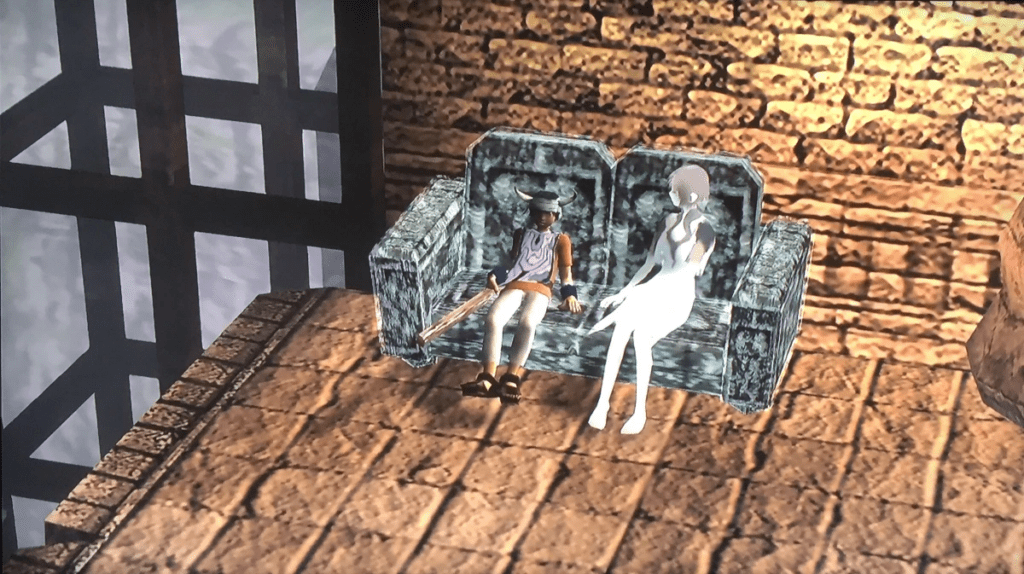
Graphics/Sound
Tempted as you may be to prioritise the HD upscaled PS3 remaster of Ico, let’s not forget just how well the PS2 original is ageing. The game crams as much gritty detail as possible into each environment, resulting in some impressive brickwork textures when indoors and absolutely stunning scenery when outside.
The game’s generous use of bloom works incredibly well in providing a natural lighting while also giving the few characters in the game, especially Yorda, a haunting otherworldly glow, which when combined with the PS2’s native grain to reduce pixelisation, makes Yorda appear ghostly or angelic. There’s an eerie yet very welcome quality to it.
A touch of grain also hides a few sins along the way, of which there aren’t many since the graphical fidelity is superb throughout. I did notice the engine struggle with Ico’s chain-climbing animations, with the cumbersome chain often clipping through Ico’s legs and torso.
Ico uses minimal dialogue in a fictional language to provide the story throughout the game. Ico and most of the Queen’s words are presented with English subtitles, but Yorda’s speech is presented in a symbolic language. Ueda opted not to provide the translation for Yorda’s words since this would defeat the object of providing an intentional language barrier in the narrative, and detract from the “holding hands” concept of the game.
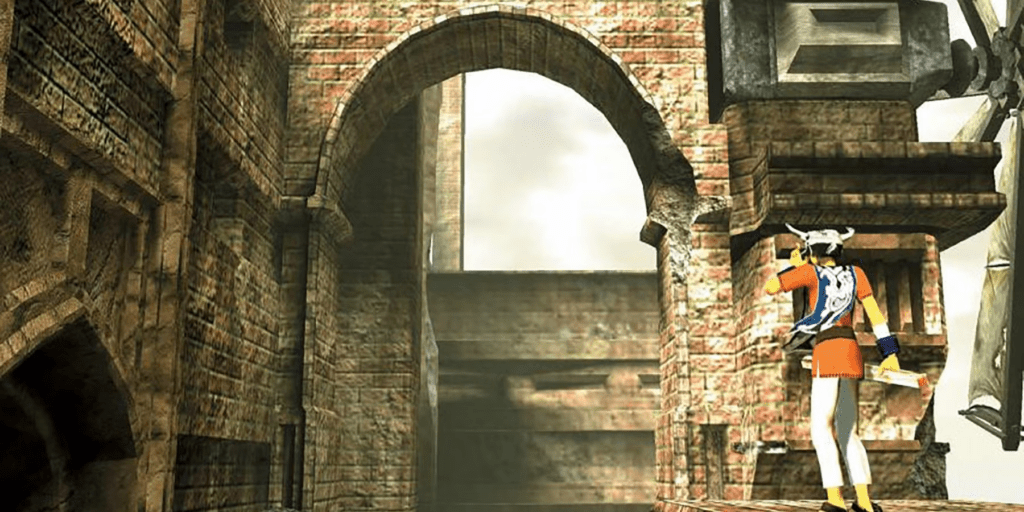
Replayability
In the European and Japanese releases, upon completion of the game, the player has the opportunity to restart the game in a local co-operative two-player mode, where the second player controls Yorda, still under the same limitations as the computer-controlled version of the character. Also in the non-North American releases, playing through the game again after completion replaces Yorda’s symbolic text with appropriate language subtitles to give you a little more insight into her thoughts.
The game is very short, coming in at around 6 and a half hours for a first playthrough. There aren’t any collectibles and so if you’re playing the PS3 version and hoping to grab all the trophies, then you’ll find the biggest challenge you’ll be facing is completing some challenging speed-runs of the game, assuming you can be bothered with that.
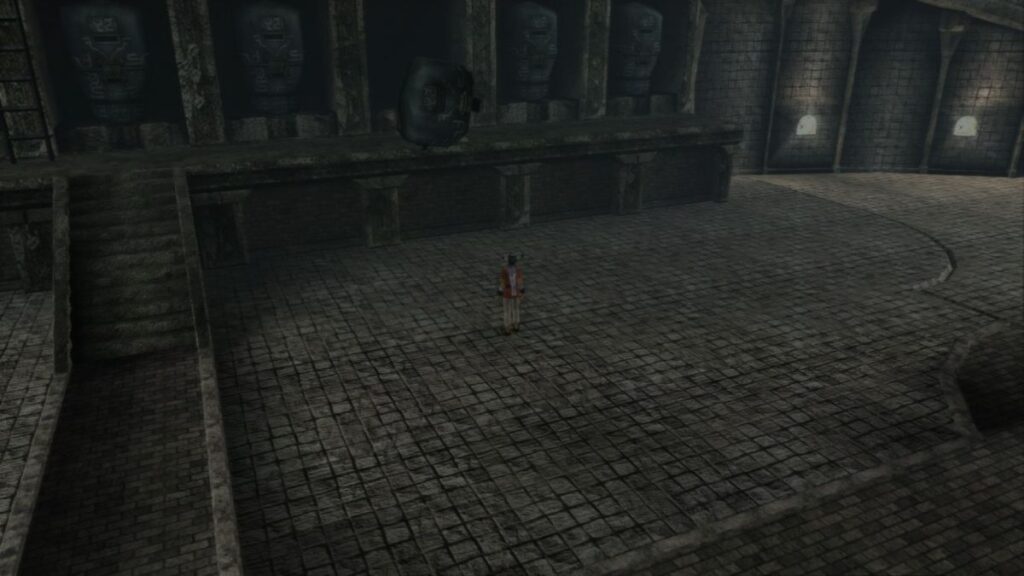
Conclusion
Even after all these years, Ico is still very much a masterpiece. I’d even say it’s mega-popular successor, Shadow of the Colossus, doesn’t actually manage to topple its predecessor. Ico also has the advantage of its charming character development. The game keeps you engaged until the very end and will leave you wondering what the future holds for Ico and Yorda, whose destinies seem rather intertwined.
Ico absolutely nails what it tries to be. An immensely atmospheric ‘boy meets girl’ story in a haunted castle with a villain reminiscent of the early years of Disney, like Snow White’s Evil Queen or old-school Maleficent. There’s a charming simplicity to the gameplay too which makes for an addictive experience, and one incredible game.
Joys
- Absolutely stunning environments and scenery
- A charming Brothers Grimm-like story
- Simple, responsive controls
Cons
- One or two graphical hiccups
- A bit short at 6-7 hours
